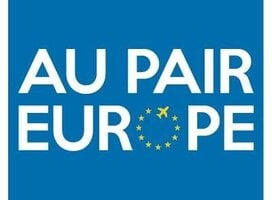Au Pair Jobs in the Netherlands
There’s a reason why the Netherlands is one of the most popular places for au pairs. With its fair working conditions, charming culture, and proximity to many other European countries, it’s a great place to spend a year, especially for native English speakers. Since au pairs are fairly common there, the country already has a very well-organized structure in place to help make the process as easy as possible for au pairs and their host families.
Still, this doesn’t mean you can just hop off the plane and expect a family to take you in with open arms. Like any other job, there’s a process that requires doing research, interviews, and quite a bit of paperwork, but most au pairs that have worked in the Netherlands would undoubtedly tell you it’s worth it in the end.
If you’re itching to spend a year frolicking through tulip fields and biking through Amsterdam’s picturesque streets, here’s what you need to know to make it happen.
Requirements
Like most international au pair programs, Dutch organizations seek young adults to work as au pairs, but the age restrictions here are narrower than in some other countries. To apply to be an au pair in the Netherlands, you must be between the ages of 18-25, unless you are on a Working Holiday visa (applicable to Canada, Australia, and New Zealand), which allows applicants up to age 29.
You also must be single with no children – since most of your job will entail hanging out with other folks’ kids, you’ll have more than enough on your hands already. The Netherlands accepts au pair candidates from countries across the world, but the visa and registration process is somewhat easier for citizens of certain countries, especially those in the EU.
Most Dutch au pair programs last for a full year (12 months). Some allow for shorter time commitments, but the maximum amount of time you can work on an au pair visa is one year, and most families and organizations prefer it.
Responsibilities/Workload
By law, your working hours can’t be more than 8 hours a day, with a maximum weekly limit of 30 hours and guaranteed two full days off each week as well as one full weekend per month. If you stay for a full year, you also get two weeks of paid vacation. Of course, since you’re living in the house, chances are you’ll end up spending a lot more time with the family, and you may occasionally be asked to babysit during the evenings, but that time counts toward your total hours.
Your main responsibility will be childcare, but the job description also includes “light housework,” which could involve cooking, shopping, and basic cleaning. Depending on your family, you may also be asked to help with transportation for the children, so be sure to find out if that is part of their expectations and if so, confirm that your driver’s license will be valid for the time you’ll be there.
Where to find au pair jobs in the Netherlands
There are a number of databases and sites, like Au Pair World, that match potential au pairs with host families, so do a Google search to see what’s available for starters. Be mindful, though, that there are plenty of for-profit companies that offer to place au pairs but will give you little support, so look for reviews of programs and agencies.
The most important step in the application process is to register with one, or several, au pair agencies (the list of official providers approved by the International Au Pair Association is a good place to start) and create your profile with them. You can specify where you’d like to work and your preferences, as well as your educational and child-care experience, and any other skills, like languages.
The most popular times for au pairs to start are at the beginning and end of the school year (late August and late June/early July, respectively) or the beginning of the calendar year, so start looking a few months ahead of those dates to maximize the amount of time you have to find a good host family.
Visas
Visa requirements vary considerably depending on your home country and the visa you’re using in the Netherlands. The one common factor, however, is that you must bring a legal copy of your birth certificate in either English, Dutch, French, or German, to register with your local town’s GBA (personal records database).
EU residents: People from other EU countries have it the easiest – you don’t need a residence or work permit, pretty much all you have to do is show up with your birth certificate and you’re good to go. Though it isn’t required, Dutch authorities do recommend getting a residence permit anyway, as government entities may sometimes request one.
Non-EU residents: If you are staying longer than three months, you will need to apply for an MVV (Temporary Residence Permit) and/or a VVR (Regular Residence Permit). If you are from Australia, Canada, Japan, Monaco, Norway, Switzerland, Iceland, New Zealand, South Korea, Vatican City or the USA, you only need a VVR; otherwise, you will have to apply for both.
As an au pair, you will receive three meals a day and housing in the family’s home, with your own room and full access to the kitchen and other parts of the house. You will also receive between €300-340 per month in personal spending money. Au pairs are required to have health insurance, which can either be done through the local agency or arranged directly with your family.
In case of sickness, the host family should consult a doctor if needed and your allowance should still be paid during this period. In case of an emergency, it is highly recommended that you have your own health and travel insurance coverage during your stay in Australia because your host family is not responsible to cover your medical or emergency costs.
Location
When choosing your family, it’s important to think about the potential location and if it’s where you’d like to be. The Netherlands is a small country, so no matter what, you won’t be far from anything, but there’s a big difference between the quiet rural countryside and the bigger cities like Rotterdam, The Hague and the cosmopolitan capital of Amsterdam.
The cities have good public transportation (and lots of bike lanes!), while you’re likely to be driving more if you live out in the country, so having a driver’s license will be crucial if that’s where you end up. Like in most other countries, larger houses are often located outside the cities, while the urban population lives in smaller houses and apartments, so if you’ve got your heart set on a giant backyard, Amsterdam may not be your best bet.




